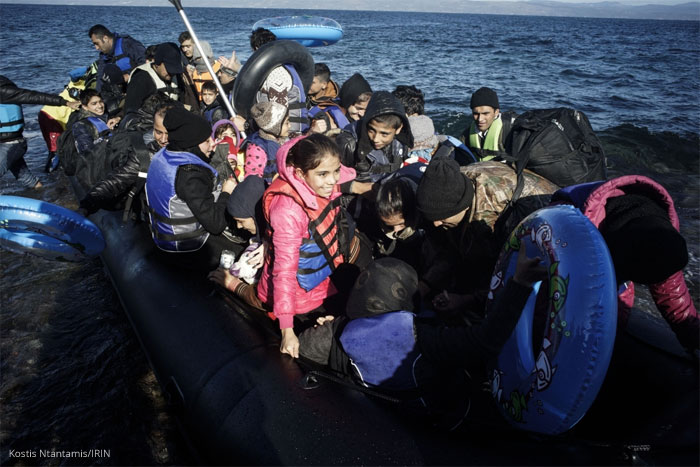The agreement between Turkey and the EU seems to be mainly a solution to benefit Europe. The extent to which the rights and safety of refugees can be guaranteed is highly debatable. This was what PAX had to say in response to the ‘refugee deal’ that was concluded on Friday.
The main concern of PAX is that, in practice, this deal means that the EU is again evading its moral responsibility to show generosity in taking in refugees. After all, the extent of Europe’s commitment is rather meagre in the light of the enormous humanitarian need and the many millions of refugees who are being taken in by such countries as Jordan and Turkey. The EU is currently sending people back to Turkey and sealing off what they call the illegal route. But for how many people will the EU subsequently create a safe route? It is true that the EU refers to a “voluntary admission scheme”, but the EU has pledged to accept only a maximum of 72,000 Syrian refugees who will be divided over the EU countries.
If this is all that is to be done, the deal with Turkey is not aimed at reducing the need of refugees, but at keeping refugees from entering Europe. In that case the deal is not a solution for the refugees, but mainly for Europe. This is morally unacceptable.
This is why PAX feels that, quite apart from the deal with Turkey, the EU should be contributing much more to the re-location of refugees in order to reduce the pressure on vulnerable countries, because otherwise the situation in those countries could also become less stable. The Netherlands, as current EU-president, should be setting a generous example in this respect.
‘Safe zone’
What’s more, in its eagerness to conclude a deal with Turkey, the EU pledged its political support for creating a safe zone in Syria. This may seem laudable, but it involves an enormous risk: For Turkey, the intention of such a zone is entirely different from that of protecting refugees. What the country wants is to prevent the development of an uninterrupted area under Kurdish government on the Turkish border with Syria. By pledging their political support, the EU could become an unwilling participant in the Turkish-Kurdish conflict in Syria.
How safe is Turkey?
It is not only from Syria that people are forced to flee. Will the EU also create legal routes for refugees from other conflict areas, such as Eritrea or Libya? Will we abandon them to their fate? Or will we enter into a separate deal for every major crisis? Then there is the matter of the extent to which Turkey is actually a safe country for refugees, as is currently depicted. It is involved in a ruthless war against the PKK and it restricts the free press. What will this mean for, in particular, Kurdish refugees who are sent back to that country?




